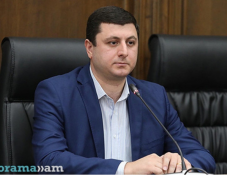
UNICEF publishes recommendations for online gaming industry on assessing impact on children
UNICEF has published a set of recommendations for the online gaming industry, designed to guide and support online gaming companies through a process of incorporating child rights considerations throughout their business activities.
"The COVID 19 epidemic has shown an explosion in online gaming (among all age groups), demonstrating that gaming is a central element in 21st century leisure and entertainment," said Wivina Belmonte, Principal Advisor Partnerships, UNICEF Division of Private Fundraising and Partnerships. "As the creators of digital environments that draw time and attention of children around the world, online gaming companies have the responsibility to shape their platforms in ways that respect and support children’s rights. I hope these recommendations can help companies understand the impacts and take action to improve their performance."
The Recommendations for the Online Gaming Industry on Assessing Impact on Children – compiled with extensive inputs from the industry – highlight some of the key child rights considerations for online gaming companies of all kinds, from game developers, publishers, distributors, platforms, esports companies and streaming services. They build on a UNICEF Discussion Paper on Online Gaming and Child Rights published in 2019 and extensive engagement with the online gaming community, UNICEF reported.
"We are pleased to have engaged with UNICEF on these recommendations, including by participating in a deep dive together with industry partners. This support is part of our responsibility to protect minors, but also empower them to benefit from digitalization and gaming responsibly and securely,” says MTG’s President and CEO Jørgen Madsen Lindemann.
The recommendations highlight issues around healthy game time, ensuring inclusion and representation, avoiding toxic environments, considerations around age-limits and verification, combatting grooming and sexual abuse, and managing commercial influence.
"Children and young people increasingly use games and gaming platforms to meet and engage beyond play, it is therefore paramount to establish a common language and understanding of the challenges and opportunities that comes with it," said Dieter Carstensen, Head of Digital Child Safety at the LEGO Group. "This comprehensive, hands-on toolkit will enable the whole games value chain to better understand and identify ways to integrate children’s rights more effectively."
"We welcome the UNICEF guidance document helping industry associations, formal and non-formal educational institutions and game developer studios and publisher to mainstream child right considerations," said Jari-Pekka Kaleva, COO of the European Games Developer Federation.
These recommendations aim to guide the online gaming industry on embedding child rights within internal processes with a goal of providing the best possible experience for all children looking to enjoy gaming online. "We are very happy to continue this journey with the online gaming industry through issuing these recommendations, which we hope will help companies to better protect and support the children that play games and set the stage for further collective efforts," said Andrew Mawson, Chief of Child Rights and Business, UNICEF Division of Private Fundraising and Partnerships.
Newsfeed
Videos






























